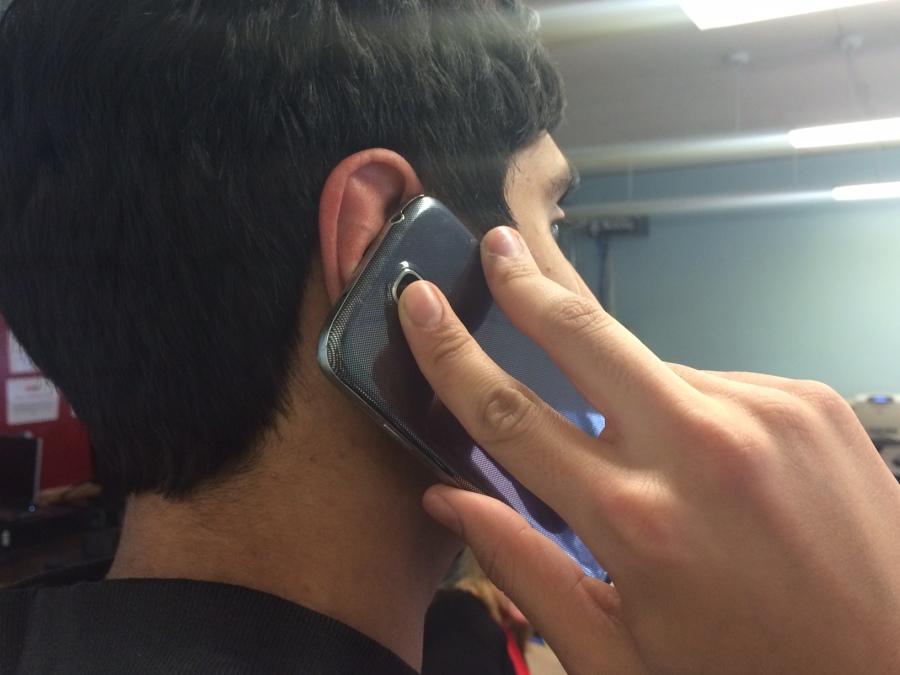A Link Between Cell Phones and Brain Damage
From morning until night, people use their phones whether by texting, calling, using the Internet, playing games, sending email, or doing business. In this day and age, a cell phone can be considered a small laptop because of all the different features it has. Some people may even claim that they can’t live without their phone. It’s strange to think that a phone is someone’s first priority, right? But you have to admit that it’s true. Believe it or not, four out of five teens sleep with their phones says Suzanne Phillips from pbs.org. What they may not realize is how that phone can affect their brains while they sleep.
Cell phones exchange signals with nearby cell towers using what is called RF waves. RF waves are a form of electromagnetic energy that can range between FM radio waves and microwaves. A problem with excessive cell phone usage, experts from the American Cancer Society state, is that the closer the phone is to your head the greater the exposure to those RF waves. “Long term and frequent use of cell phones which receive and emit radio frequency may be associated with an increased risk of brain tumors,” says Herberman, a health official. “I find the old adage ‘better to be safe than sorry’ to be very apt to this situation.”
Phones send and receive signals whether they are in use or just sitting there in lock mode next to you. That means those waves are always near your brain. Over a long period of time, like Herberman stated, this may increase chances of brain cancer. Your brain is something you shouldn’t mess with, and cell phones are definitely in the running for creating many risks. Ms. Bischer, a Morris Hills psychology teacher, also agrees that cell phones can “be a trigger of cancer.”
Sleeping with a cell phone near your head isn’t a good choice. Although you’re asleep, your brain is still functioning and can still be affected by the phone. Ms. Bischer explains that, “the ambient light from the cell phone can actually negatively impact sleep patterns. So if the cell phone is on or lit in some way, it can actually interfere with a person’s ability to go through normal sleep stages.” Your brain is not able to go through all the stages of sleep resulting in the loss of REM sleep, which is considered intense sleep. Deficiency of REM sleep can result in an increase in irritability, anxiety and depression, and a decrease in concentration and creativity. This can affect students in school because their brains are not functioning properly. Cell phones can take a toll on students’ level of concentration and ultimately affect their academic performance.
It’s recommended to put your phone in a place that is over three feet away from where you sleep. That way you have less of a chance of waves reaching your brain and also less temptation to sleep with your phone next to you.


